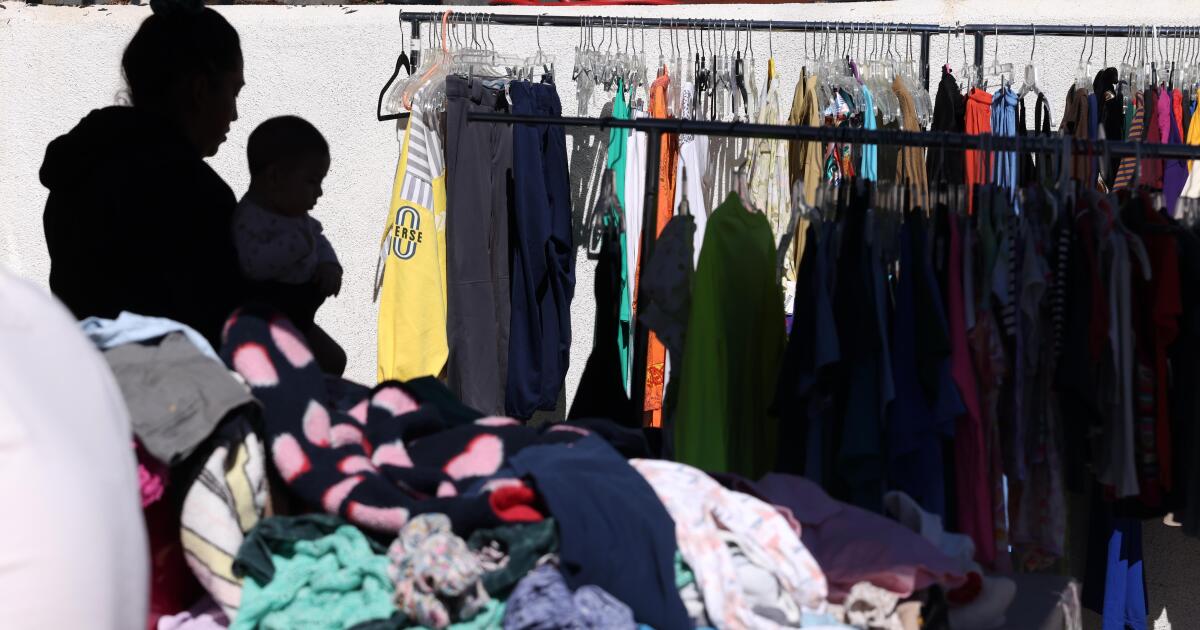State officials say federal health care cuts will hurt millions of Californians

Sacramento – The state does not have the financial capacity for large, future federal cuts to health care programs used by millions of vulnerable Californians, a fact that will force state lawmakers to consider reducing benefits and eligibility and increasing the number of residents without health insurance.
The stark assessment, released by the state Legislative Analyst’s Office, comes as the state faces an ongoing budget deficit — with a $17 billion shortfall for the next fiscal year — and near-cuts to food assistance programs, such as SNAP, due to the government shutdown.
On Tuesday, Gov. Gavin Newsom said the combined fallout from the shutdown and the Republican-backed “big, beautiful bill” has left the state at a standstill.
Newsom said at a news conference that we are “looking at the largest cuts to Medicaid in American history.” “They supported the largest cuts to food stamps and SNAP in U.S. history — $186 billion over the next ten years — before this manufactured crisis, making them decide not to provide emergency funds to mitigate the impact.”
The governor said he is working with state lawmakers to identify additional resources to help offset the cuts, but states can only do so much.
California’s top health officials warned Monday that the federal cuts would deal a devastating blow to public health and affect all Californians, including those with private health insurance, as the state struggles to reduce the damage.
“These changes will affect our emergency departments, rural hospitals, private and public hospitals, community health centers, ambulance providers and the broader health care system that serves every community,” said Michelle Bass, director of the California Department of Health Care Services.
Bass was among several experts who spoke at a briefing on the impact of HR 1, passed by the Republican-led Congress and signed by President Trump, which shifts federal funding away from safety net programs for the vulnerable and toward tax cuts and immigration enforcement. She said the law makes sweeping changes to Medi-Cal, as Medicaid is known in California.
Bass said it would “cause massive damage by making huge cuts in federal funding and potentially cripple the health care safety net.” “These changes put tens of billions of dollars in federal funding for California at risk and millions of Californians could lose coverage.”
The nonpartisan Legislative Analyst’s Office, which advises the California Legislature on budget and policy issues, estimated in an Oct. 24 report that federal cuts could reduce funding by “tens of billions of dollars.” The report warned that about 1.2 million people could lose coverage under Medi-Cal, which provides health care to eligible low-income residents. Bass predicts that number could be much higher.
“The state does not have the fiscal capacity to replenish all lost federal revenue as a result of HR 1,” the legislative report said. “Thus, the Legislature will consider how to move toward Medi-Cal eligibility, benefits, and funding. Changes to Medi-Cal will come with key policy trade-offs regarding access, costs, and other priorities that the Legislature needs to address.”
To mitigate some of the impact, state lawmakers may raise existing taxes on private health plans and hospitals, but those additional costs will increase costs for all Californians seeking care at a time when people are already struggling with high state costs.
About 15 million Californians — a third of the state — are in Mid-Cal, with some of the highest percentages in rural counties. More than half of children in California receive health care coverage through Medicall, according to the Department of Health Care Services.
Bass explained that the federal law creates new eligibility requirements for Medicaid. Starting in 2027, most people ages 19 to 64 must work at least 80 hours a month, or perform 80 hours of community service or enroll in an educational program, to qualify. The law allows for various exemptions, including pregnancy, disability, or caring for children under the age of 19.
She estimated that 3 million Medi-Cal recipients would lose coverage as a result.
“This will significantly increase the uninsured rate which increases the cost for hospitals treating uninsured patients,” Bass said.
Bass said HR 1, the “big, beautiful bill,” also bars abortion providers from receiving federal Medicaid funding — even for health care services they offer that aren’t related to the procedure — and cuts federal dollars for emergency medical care for undocumented immigrants. It also limits state funding mechanisms, such as taxes paid by managed care providers, and creates federal penalties for improper payments.
CalFresh, the state’s name for the Supplemental Nutrition Assistance Program, expects a long-term shortfall of at least $1.7 billion a year, said Jennifer Troya, director of the California Department of Social Services. About 395,000 people could lose their government food aid benefits.
SNAP benefits have also been affected by the current government shutdown, with payments temporarily halting altogether in November.
At the heart of the shutdown is a political standoff in Washington over an expiring tax credit for people who get health insurance through the Affordable Care Act, also known as Obamacare. Democrats said they would not vote to reopen the government unless Republicans agreed to renew the expanded subsidies. Republican leaders refused to negotiate until Democrats voted to reopen the government.
Covering California, the state’s Affordable Care Act health insurance marketplace, it estimated over the summer that 660,000 of the roughly 2 million people in the program would either lose coverage or drop out because of cost increases and tough new obligations to remain enrolled.
The effects of the new federal cuts and policies are already being felt across the state and nation.
Planned Parenthood programs in Orange and San Bernardino counties announced their impending closure earlier this month due to federal funding cuts. The Los Angeles County Health System has implemented a hiring freeze and is trying to cut $750 million a year for the county’s Department of Health Services, which oversees four public hospitals and about two dozen clinics. Meanwhile, food banks across the country are scrambling for help and preparing for long lines.
Kim Johnson, secretary of the state’s Department of Health and Human Services, discussed how California is fighting back.
Newsom recently announced that he is deploying the National Guard and fast-tracking $80 million to support food banks. It came on the heels of the governor’s decision to allocate $140 million in state funding to Planned Parenthood.
Johnson said Atta. Gen. Rob Bonta has filed more than two dozen lawsuits related to HR 1.
“Here in California, we will continue to mitigate the harm of these federal changes wherever we can,” she said.




Post Comment